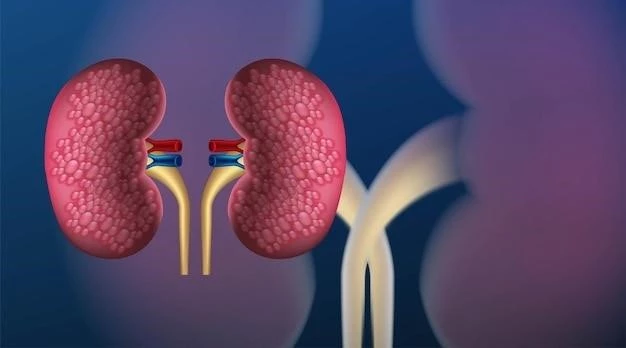Understanding Bilateral Renal Agenesis
For individuals with bilateral renal agenesis‚ understanding the condition is crucial in navigating diagnosis and treatment.
Definition of Bilateral Renal Agenesis
Bilateral renal agenesis is a rare condition where both kidneys fail to develop during fetal growth‚ leading to serious health implications.
Causes of Bilateral Renal Agenesis
The main cause of bilateral renal agenesis is a disruption in the normal development of the urinary system during early fetal stages‚ often attributed to genetic factors or environmental influences.
Symptoms and Diagnosis
Bilateral renal agenesis may present with oligohydramnios in utero‚ along with severe complications after birth like respiratory distress and abnormal facial features. Diagnosis typically involves prenatal ultrasound and postnatal imaging studies.
Genetic Factors in Renal Agenesis
Understanding the role of genetics in renal agenesis is crucial for treatment and prevention.
Overview of Genetic Influence
Genetic factors play a significant role in bilateral renal agenesis‚ with mutations in key genes impacting kidney development and functioning. Understanding these influences is fundamental for genetic counseling and management strategies.
Genes Associated with Bilateral Renal Agenesis
Various genes‚ such as ROBO2 and SALL1‚ have been linked to bilateral renal agenesis‚ shedding light on the genetic basis of the condition. Understanding these genes aids in developing targeted treatment approaches and genetic counseling.
Genetic Counseling for Families
Genetic counseling is crucial for families affected by bilateral renal agenesis‚ providing insights into the inheritance patterns‚ recurrence risks‚ and available testing options. This support helps families make informed decisions regarding their future health.
Treatment Options for Bilateral Renal Agenesis
Exploring medical and surgical interventions‚ along with transplant considerations‚ for managing this condition.
Medical Management
Medical management of bilateral renal agenesis focuses on optimizing renal function through close monitoring‚ managing complications‚ and providing supportive care to improve quality of life for affected individuals.
Surgical Interventions
In cases where non-functioning kidneys pose risks‚ surgical interventions such as nephrectomy may be necessary to alleviate complications and improve overall health and well-being in individuals with bilateral renal agenesis.
Kidney Transplant Considerations
For individuals with bilateral renal agenesis‚ kidney transplant is a potential option to restore renal function and improve quality of life. This consideration involves careful evaluation for suitability and long-term management post-transplant.
Coping with Bilateral Renal Agenesis Diagnosis
Exploring the emotional impact‚ support groups‚ and coping strategies for daily life.
Emotional Impact on Patients and Families
The diagnosis of bilateral renal agenesis can have profound emotional effects on patients and families‚ necessitating access to counseling and psychological support to navigate the challenges and uncertainties associated with the condition.
Support Groups and Counseling
Engaging in support groups and counseling services can provide valuable emotional support‚ guidance‚ and a sense of community for individuals and families affected by bilateral renal agenesis‚ helping them cope with the challenges and uncertainties that may arise.
Coping Strategies for Daily Life
Developing effective coping strategies‚ incorporating lifestyle modifications‚ and creating a supportive environment are essential for managing the challenges of bilateral renal agenesis in daily life‚ promoting overall well-being and resilience.

Research Advances in Renal Agenesis
Exploring current studies‚ new treatment approaches‚ and potential future developments.
Current Studies and Findings
Ongoing research on bilateral renal agenesis focuses on uncovering new insights into the genetic mechanisms‚ potential therapies‚ and improving outcomes for individuals affected by this rare condition‚ offering hope for advancements in treatment and care.
New Treatment Approaches
Emerging treatment approaches for bilateral renal agenesis involve innovative methods such as regenerative medicine and gene therapy‚ aiming to address the root causes and enhance the prospects for kidney development and function restoration in affected individuals.
Potential Future Developments
Exciting future prospects in bilateral renal agenesis research include personalized medicine strategies‚ advanced genetic interventions‚ and stem cell technologies‚ offering new avenues for treatment customization and improved outcomes for individuals with this condition.
